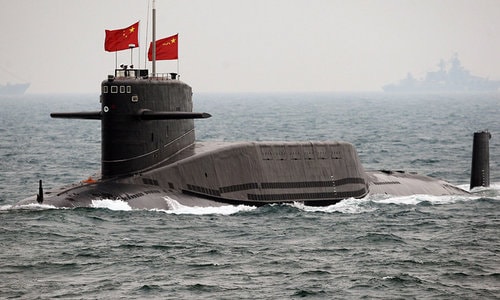Barriers to China's unmanned "suicide" submarine ambitions
The lack of human control and the risk of diplomatic incidents could hamper China's unmanned submarine program.
|
Chinese submarines participating in exercises in 2012. Photo:USNI. |
The Chinese military is developing large unmanned submarines equipped with artificial intelligence (AI) to conduct reconnaissance, mine-laying and suicide attacks. Chinese researchers believe they could challenge the US Navy's dominance in strategic areas such as the South China Sea and the Western Pacific when they enter service in the early 2020s.SCMPJuly 23 news.
However, experts say Beijing's ambition to build AI-powered submarines will face many obstacles, preventing the country from building a fully autonomous submarine fleet to confront the US Navy in the near future.
Military powers have been developing unmanned underwater vehicles (UUVs) since the mid-1960s, but most of these submersibles require human control from surface warships or mother submarines.
Maintaining remote control of UUVs underwater is always difficult, even in the best weather conditions. China seems to be looking to overcome this weakness by equipping its submarines with artificial intelligence, allowing them to calculate their own operational and combat plans, eliminating dependence on humans and natural conditions.
However, there are many potential risks with a fully autonomous submarine, without human control. The artificial intelligence system could lose control and not carry out its initial commands. This could lead to it launching attacks on fishing boats, merchant ships, whales, or even allied warships, instead of just focusing on destroying enemy warships.
|
US submarine captured by China in late 2016. Photo:USNI. |
Even if AI’s autonomous capabilities are overcome, China’s autonomous submarines could face legal hurdles as they become more widespread, similar to the debate over the laws governing the operation of unmanned aerial vehicles (UAVs) today.
In addition, the operation of these unmanned submarines in international waters can cause diplomatic disputes. This happened in 2016, when the Chinese navy seized a US unmanned submarine operating in the South China Sea. The incident caused tension between the two countries, before Beijing agreed to return the UUV to Washington.
"A fleet of unmanned combat submarines moving across the oceans has the potential to cause diplomatic incidents, requiring China to be especially careful in developing them," said analyst Brad Howard.


